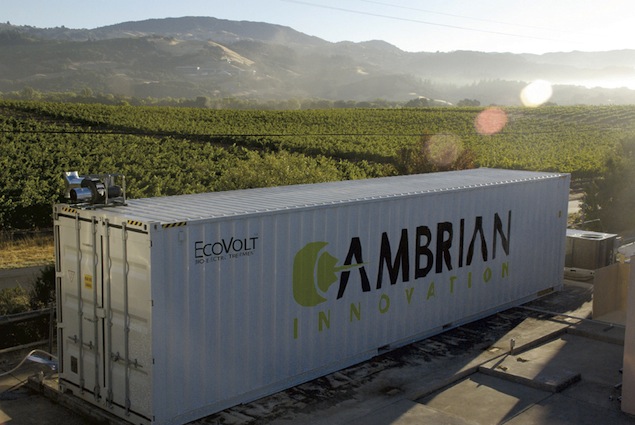Winemakers in Northern California’s Sonoma County say they want to be the nation’s first 100% sustainable wine region by 2019. First up is figuring out where improvements can be made, and winemakers representing more than half of the county’s vineyard acreage have now completed a “sustainability self-assessment,” according to the Sonoma County Winegrowers.
That 50 percent milestone gets the region “one step closer to the reality that ‘Sonoma County’ on the label will soon be synonymous with sustainably grown and made wines,” says Karissa Kruse, president of the business group.
The movement toward sustainability comes as a growing number of California winemakers and brewers are utilizing a new treatment system that promises to dramatically reduce the amount of wastewater they produce.
One of the leaders in the sustainability movement is Jackson Family Wines, Sonoma County’s largest vineyard owner with about 3200 acres, according to the Press Democrat of Santa Rosa. The company has saved at least $15 million on energy costs and cut its water use almost by half since 2008, the paper says. Jackson’s sustainability efforts include solar panels paired with Tesla battery systems, as well as drones to monitor vineyards from above and ensure they are not getting too much water.
Jackson has also slashed its water usage — wine makers use a lot of water to wash their storage tanks — by using a sort of fog machine to create tiny bubbles that cling to the side of the tank and sterilize it, according to the Press Democrat.
The drive toward sustainability in Northern California is also creating business opportunities.
One of the companies offering ways for brewers and winemakers to deal with their environmental impact is Cambrian Innovation, which sells the EcoVolt. The proprietary bioelectric process uses a special kind of microbe that feeds on nutrients found in effluent from breweries and vineyards. The system makes the water clean enough to be reused for washing equipment, though not for making beer or wine. EcoVolt also produces methane gas that is used to create hot water and electricity.
Cambrian’s clients so far include Sonoma County winemaker Clos du Bois as well as two beer makers: Bear Republic Brewing Co., also in Sonoma, and Lagunitas Brewing Co., based in nearby Marin County.

Demonstration at Clos du Bois after installation.